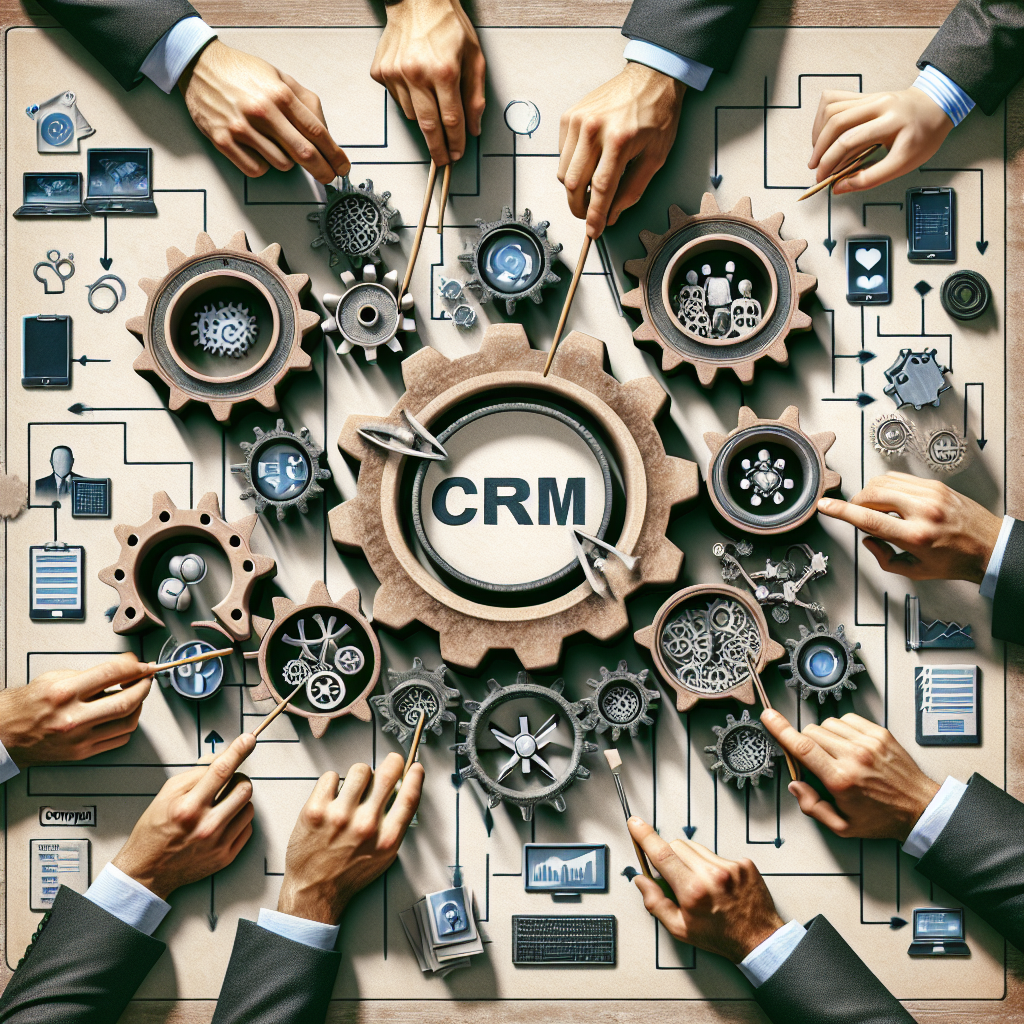How to Tailor Your CRM System to Meet Your Company’s Unique Needs

Introduction
Customer Relationship Management (CRM) systems are essential tools for businesses to manage interactions with their customers and potential customers. However, not all CRM systems are created equal, and it’s important to tailor your CRM system to meet your company’s unique needs. In this blog post, we will discuss how you can customize your CRM system to better suit your business requirements.
Understanding Your Company’s Needs
The first step in tailoring your CRM system is to understand your company’s unique needs. This involves analyzing your business processes, identifying pain points, and determining the specific features and functionalities that are important to your organization. You may want to consider factors such as the size of your business, the industry you operate in, and the specific goals you want to achieve with your CRM system.
Assessing Your Current CRM System
If you already have a CRM system in place, it’s important to assess its effectiveness and identify any limitations or areas for improvement. This can involve gathering feedback from users, conducting surveys, and analyzing data to determine what is working well and what needs to be changed.
Customizing Your CRM System
Once you have a clear understanding of your company’s needs, you can begin customizing your CRM system to better align with your goals and objectives. This can involve a variety of strategies, including:
Customizing Fields and Data
One of the most basic ways to tailor your CRM system is to customize fields and data to capture information that is relevant to your business. This can involve adding new fields, modifying existing fields, and creating custom data sets to track specific metrics or KPIs.
Integrating Third-Party Applications
Many CRM systems offer the ability to integrate with third-party applications, such as marketing automation tools, social media platforms, and e-commerce platforms. By integrating these applications with your CRM system, you can streamline processes, improve data accuracy, and enhance the overall customer experience.
Automating Workflows
Automation is a key component of modern CRM systems, allowing businesses to streamline repetitive tasks, improve efficiency, and reduce human error. By automating workflows within your CRM system, you can save time and resources, and focus on more strategic activities.
Personalizing Customer Interactions
Personalization is a powerful tool for building customer relationships and driving engagement. By customizing customer interactions within your CRM system, you can deliver targeted messages, offers, and content that resonate with your audience and drive conversions.
Measuring Success and Iterating
After customizing your CRM system, it’s important to measure the impact of your changes and iterate based on feedback and data. This can involve setting key performance indicators (KPIs), tracking metrics, and analyzing results to determine the effectiveness of your CRM system and make continuous improvements.
Conclusion
Customizing your CRM system to meet your company’s unique needs is essential for maximizing its value and driving business success. By understanding your business requirements, customizing fields and data, integrating third-party applications, automating workflows, and personalizing customer interactions, you can create a CRM system that aligns with your goals and objectives.
FAQs
Q: How do I know which features to prioritize when customizing my CRM system?
A: Prioritize features that align with your company’s goals and objectives, address pain points, and improve efficiency and productivity.
Q: What are the benefits of integrating third-party applications with my CRM system?
A: Integrating third-party applications can streamline processes, improve data accuracy, and enhance the overall customer experience.
Q: How can I measure the success of my customized CRM system?
A: Measure success by setting KPIs, tracking metrics, and analyzing results to determine the impact of your changes and make continuous improvements.
